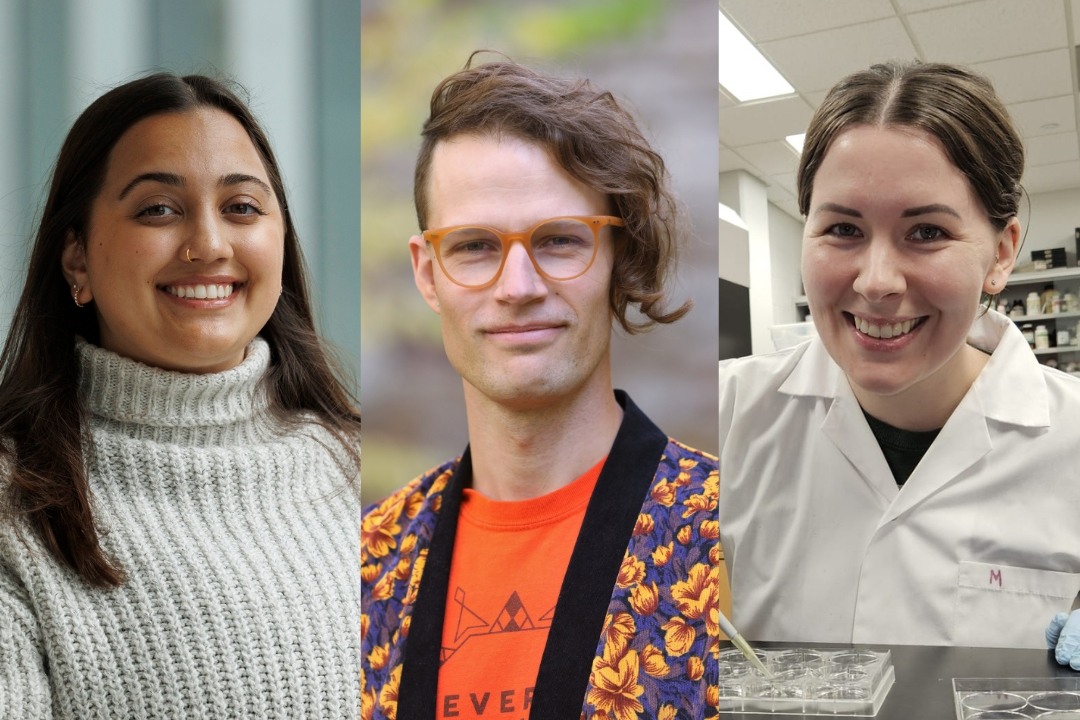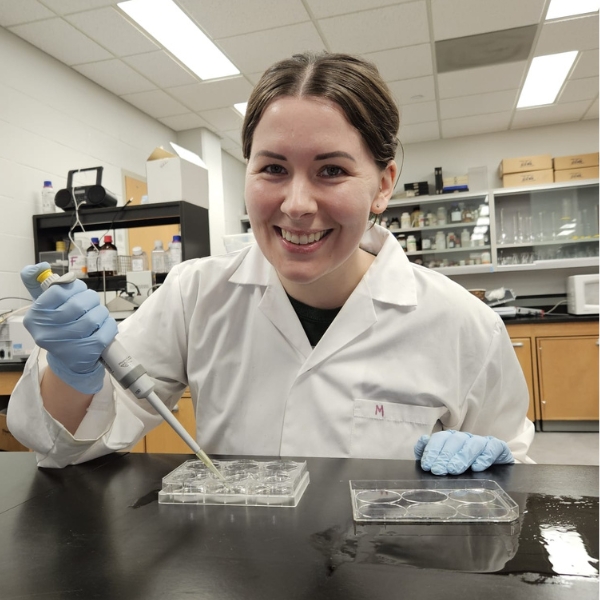
Trio of USask graduate students receive prestigious Vanier Scholarships
Morgan Fleming, a PhD student in the College of Agriculture and Bioresources, is one of three USask graduate students to have received funding to support innovation in diverse fields of English literature, community air quality, and plant and nutrition genetics.
By MATT OLSON, RESEARCH PROFILE AND IMPACTThe prestigious and competitive Vanier Canada Graduate Scholarships are designed to help universities recruit and support the best and brightest graduate students – and this year, three University of Saskatchewan (USask) students have received the esteemed honour.
The Vanier program is jointly administered by the Canadian Institutes of Health Research (CIHR), the Natural Sciences and Engineering Research Council of Canada (NSERC) and the Social Sciences and Humanities Research Council (SSHRC). Each of the three USask-based Vanier Scholars are respectively located in a different area of supported research.
Vanier Scholarships are valued at $50,000 per year for three years of doctoral-level study, and consider three criteria for selection: academic excellence, research potential and a potential and demonstrated leadership ability.
“The Vanier Scholarships are extremely special in their equally weighting past academic excellence with research potential and leadership,” said Dr. Debby Burshtyn (PhD), dean of USask’s CGPS. “The three 2024 recipients are already making their mark in our university; it’s wonderful to see that we are attracting and retaining such talent across the areas of humanities, health and STEM research.”
The Vanier Scholarship is considered one of the most competitive competitions for aspiring scholars in Canada, and USask’s three recipients are already hard at work in their areas of research.
Plants, food and the secret to living longer and healthier lives

USask researcher Morgan Fleming is examining how a component of plant-based foods might help you live a longer life.
Fleming, a PhD student in the College of Agriculture and Bioresources, is exploring how phenolic compounds – present in all plant-based foods – have impacts on the health of human cells.
“My research is contributing to promoting the human health span,” she said. “It’s going to be helping us all live healthier for longer through delaying the onset of age-related disease.”
It’s known that phenolic compounds are good for humans due to their antioxidant properties, but Fleming said recent research suggests they could do more for humans with regard to cellular processes and regulating health and disease. Her research will investigate how they mechanistically achieve those benefits in human cells.
Fleming said she was excited to delve into an area of science that can help humans at large live healthier and longer and noted this research could expand into animals too.
“I am excited to help people not be burdened by the physical deterioration that comes with aging, to delay age-related disease and help us all live healthier,” she said. “Helping us, helping our pets, and improving quality of life for people.”
Working under the supervision of Dr. Christopher Eskiw (PhD) and professor emeritus Dr. Nicholas Low (PhD), Fleming is cultivating human cell samples and treating them with various phenolic compounds to analyze how they directly affect cells.
Fleming said becoming a Vanier Scholar was “very motivating” for her, because it showed that the federal program believes in her, her research and her community outreach-oriented goals for this work.
It’s an exciting prospect to continue this field of research, and Fleming said the Vanier Scholarship opens new possibilities for her studies.
“(Being a Vanier Scholar) means we’re going to be able to perform more high-quality research, not nearly as limited by funding, and have more opportunities to share my research at conferences,” she said.
Read the full story at news.usask.ca.
Together we will support and inspire students to succeed. We invite you to join by supporting current and future students' needs at USask.

